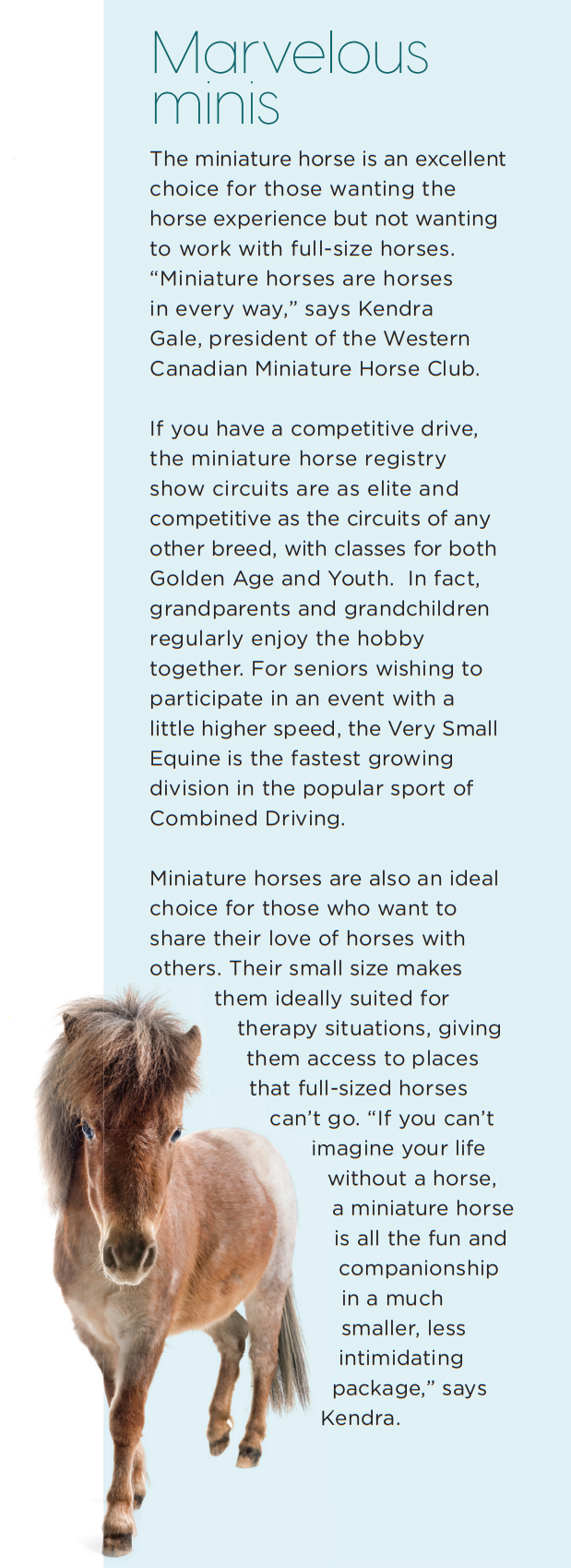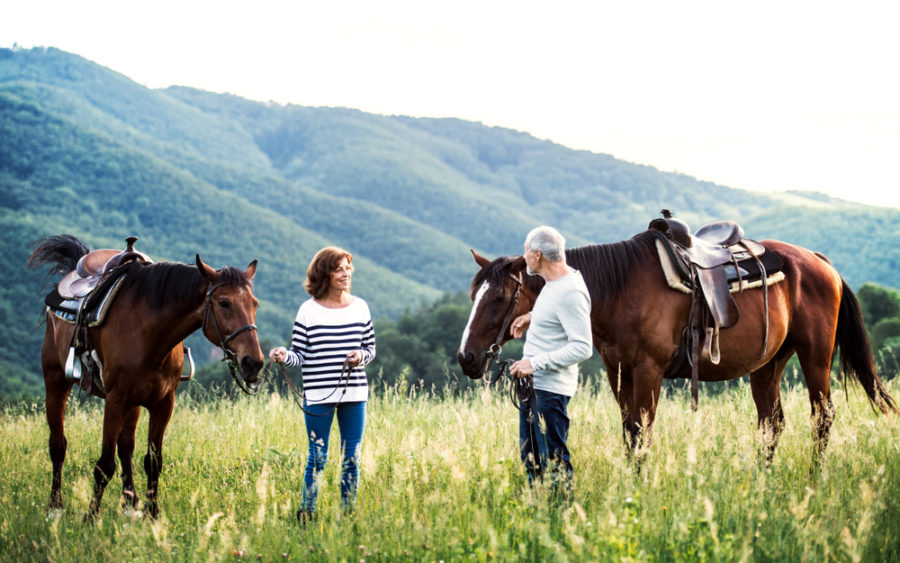As any senior equestrian can attest, age doesn’t affect one’s love of horses! Follow these safety tips to keep yourself safe at the barn throughout your golden years.
While working with large animals always poses a few hazards, the passionate horse lover is usually ready to accept them! Even as human bodies age and injuries take longer to heal, our love of our equine companions largely outweighs any potential risk. Still, there are a few ways seniors can maximize their safety when spending time with horses. Let’s take a look!
1. Find Mr. or Ms. Right
A major factor in safely interacting with horses is to find a match that suits the abilities of the rider/handler. An elderly or inexperienced rider needs a well-trained, sensible partner – not a Thoroughbred hot off the track!
2. Keep it short and sweet
The Irish had an expression my mother often used as she grew old. She said she was “growing down like a cow’s tail.”
For seniors like me who are short and getting shorter, horse breeds like the Norwegian Fjord or the Icelandic Horse (nicknamed “ponies for adults” by some!) might prove to be a good choice. Even Queen Elizabeth, a truly excellent rider, switched to Fel ponies for recreational riding as she aged. On her advice, so did Canada’s most famous horse breeder and recreational rider E.P. Taylor, importing some Fel ponies from England.
 Robyn Hood, one of the founders and first President of the Canadian Icelandic Horse Federation, has sold hundreds of horses throughout the years, always with the guarantee that they can be returned if they prove to be unsuitable for the purchaser’s needs (which very rarely happens, says Robyn).
Robyn Hood, one of the founders and first President of the Canadian Icelandic Horse Federation, has sold hundreds of horses throughout the years, always with the guarantee that they can be returned if they prove to be unsuitable for the purchaser’s needs (which very rarely happens, says Robyn).
According to Robyn, it’s paramount that people of any age are matched with the right horse. If you’re considering buying a horse, she advises, you should first experience it in situations similar to those you want the horse for. “The glamour of the show ring might be a person’s first inspiration when deciding to buy a horse,” she says, “but the reality is that once in the saddle the largest number of Icelandic owners do most of their riding on the trail. They want a safe, rational, easy to gait horse.”
3. Invest in safety gear
Senior riders should ensure they have all the usual safety gear for riding – safety stirrups, certified riding helmets, proper riding boots with a heel, etc. I would also recommend that seniors wear a padded equestrian protective vest. Ribs get more fragile as the years go by!
4. Use the buddy system
Another good safety measure to follow is to buddy up when going out on the trails. At the very least, have the means of communicating with someone if an accident should occur.
Even when riding in an arena, ring or field, this measure should be adapted. I knew one rider who was thrown from her horse in a field and spent the rest of the day with a broken pelvis watching the corn grow until her husband got home.
“If you have it, it is for life. It is a disease for which there is no cure. You will go on riding even after they have to haul you on a comfortable wise old cob, with feet like inverted buckets and a back like a fireside chair… when I can’t ride anymore, I shall still keep horses as long as I can hobble about with a bucket and a wheelbarrow. When I can’t hobble, I shall roll my wheelchair out to the fence of the field where my horses graze, and watch them.”
– Monica Dickens
5. Stay in shape
Horseback riding requires both strength and balance, but as we age our muscles weaken and our joints tend to lose range of motion. A doctor-approved exercise regimen can help keep us in the saddle.
Two popular mottos in the Horse Health care field are movement is medicine and motion is lotion. These mottos make sense if you think of the synovial fluid that lubricates your joints as soothing lotion. Physical activity boosts the circulation of synovial fluid, helping to ensure our joints are “well-oiled”.
6. Set realistic expectations
To stay safe, we need to be realistic. Even show jumping legend Nick Skelton, who represented Britain for over forty decades, eventually retired after winning the 2016 Olympic gold medal on Big Star.
7. Remember – you don’t have to be a hero!
Many seniors enjoy being around horses but no longer feel the need to ride them. There is, in fact, a Non-Ridden Equine Association founded in the UK that promotes alternate activities with horses ranging all the way from trick Horse Training and ground agility to meditative hikes with your horse.
Whether you ride or not, don’t let anyone pressure you into doing something you’re not comfortable with, as that’s a recipe for disaster. There’s no need at this stage to prove anything to anyone!







